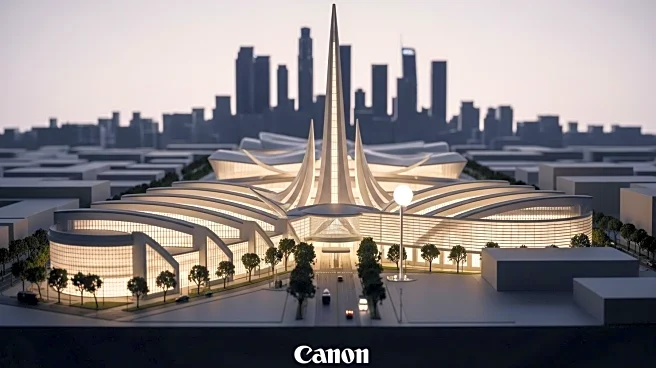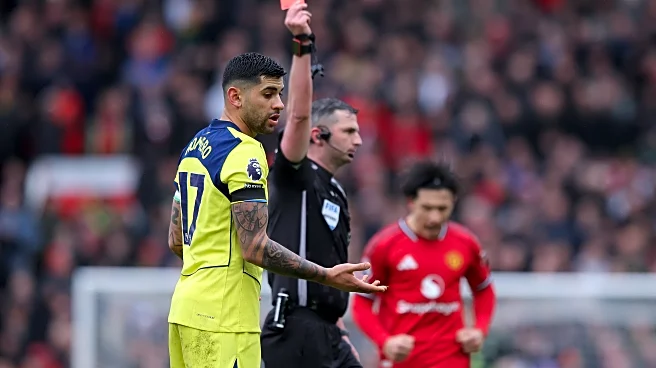What's Happening?
The Los Angeles City Council is grappling with escalating costs associated with the expansion of the downtown Convention Center. Initially estimated at $2.2 billion, the project's cost has surged to $2.7 billion, an increase of $483 million over the past six months. The expansion is considered crucial for revitalizing downtown Los Angeles and preparing for the 2028 Olympic Games. However, the financial burden is raising concerns among city officials, especially given the city's existing budgetary constraints. The project relies heavily on revenue from digital billboards, which are yet to receive state approval. Without this revenue, the city may need to allocate an average of $111 million annually from its general fund to cover costs, potentially impacting other essential services.
Why It's Important?
The expansion of the Los Angeles Convention Center is pivotal for the city's economic growth and its ability to host major events like the 2028 Olympics. However, the rising costs pose a significant financial risk, potentially diverting funds from critical services such as policing and infrastructure maintenance. The project has garnered support from business groups and labor unions, emphasizing its potential to create jobs and boost the local economy. Yet, the financial strain could lead to difficult budgetary decisions, affecting the city's ability to maintain essential services. The situation underscores the challenges cities face in balancing large-scale development projects with fiscal responsibility.
What's Next?
The Los Angeles City Council must decide by September 15 whether to proceed with the Convention Center expansion. This decision will likely depend on the outcome of negotiations with state officials regarding the approval of digital billboards, which are crucial for generating the necessary revenue. If the billboards are not approved, the city will need to explore alternative funding strategies or risk significant budgetary impacts. The council's decision will also consider the potential consequences of not completing the project in time for the 2028 Olympics, which could affect the city's reputation and economic prospects.











